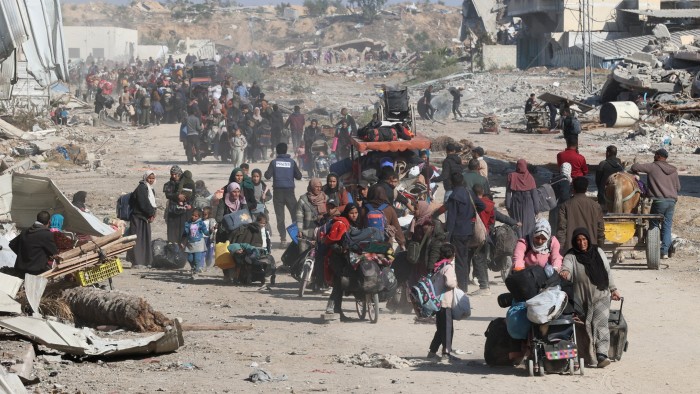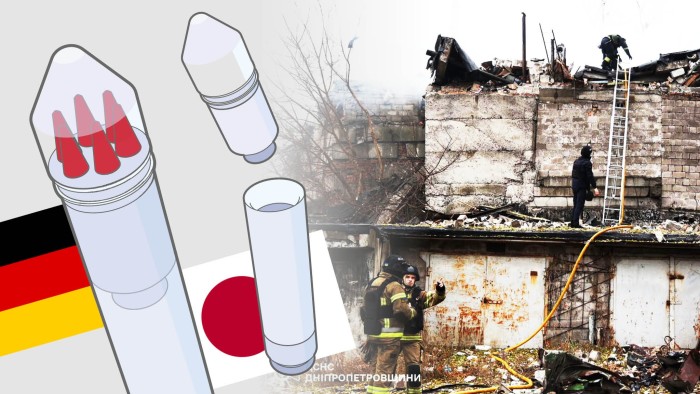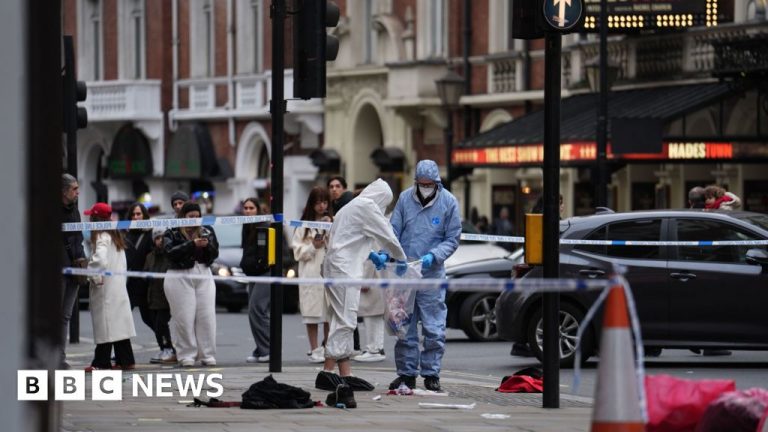Unlock the Editor’s Digest for free
Roula Khalaf, Editor of the FT, selects her favourite stories in this weekly newsletter.
Hours after spurning a US-led proposal for a 21-day truce with Hizbollah in September, Benjamin Netanyahu boasted that he was changing the balance of power in the region for years to come. Israel’s prime minister had just ordered the assassination of the Hizbollah leader Hassan Nasrallah, signalling that Israel was turning its focus from Gaza’s wastelands to step up its offensive against the Lebanese militants. As the year ends, the dynamics in the Middle East have unquestionably shifted in Israel’s favour.
The Israeli military’s relentless pounding of Hizbollah forced it into a ceasefire agreement that has essentially given Israel the right to continue striking in Lebanon. Iran appears at its most vulnerable in years. Its “axis of resistance” of Iranian-backed militants, including Hizbollah and Hamas, looks ever more a paper tiger. Israeli bombs destroyed much of the Islamic republic’s air defences in October — the biggest conventional attack on Iran in decades.
The Islamic regime suffered another devastating setback this month when Syrian rebels toppled Bashar al-Assad, the dictator it propped up during Syria’s civil war. Some 4,000 Iranians were rushed out of the country as Iran lost a critical state ally in the Middle East and a vital land link to supply Hizbollah, its most important proxy. Israel may not have had a direct hand in Assad’s spectacular demise, but its pummeling of Iranian targets in Syria, and of Hizbollah, which had also helped shore up the regime, smoothed the rebels’ path to Damascus.
Since the intelligence failure of Hamas’s horrific October 7 2023 attack, which killed 1,200 people with 250 taken hostage, the degree of Israel’s military supremacy over its foes has become starkly clear. Netanyahu’s political fortunes have rebounded in tandem. After the Hamas assault, many forecast the end of his dominance of Israeli politics. However, he seems as entrenched as ever, his far-right coalition strengthened by the addition of another party, his polling numbers back to pre-October 7 levels.
Yet Israel’s battlefield gains have come at huge costs that will fester for years to come. None should mourn the end of Assad’s brutal regime, nor the weakening of the malign influence of Iran and its proxies. But Israel’s military successes will forever be tainted by the unspeakable suffering its offensives have brought to millions of people in Gaza and Lebanon.
Israel faces growing accusations of committing acts of genocide in Gaza, including a case at the International Court of Justice, in detailed reports by Amnesty and Human Rights Watch and among Arab states, including Saudi Arabia, which Netanyahu has long courted. Not just the horrific death toll — more than 45,000, according to Palestinian officials — fuels such allegations, but also the siege Israel has laid to 2.3mn-strong Gaza; the restrictions on aid and water; and the destruction of civilian infrastructure that has rendered much of the strip uninhabitable.
Issuing an arrest warrant for Netanyahu, the International Criminal Court said there were “reasonable grounds” to believe he bears criminal responsibility for “the war crime of starvation as a method of warfare . . . and other inhumane acts”. Israel’s war and siege is a stain not just on Israel but also the US, which has allowed Netanyahu to act with impunity.
After destroying Hamas’s military capacity and neutering regional threats to Israel, Netanyahu has no justification not to end the conflict and agree a deal to release the remaining hostages. But he and his far-right allies instead appear bent on occupying more territory on various fronts and keeping Israel in a perpetual state of conflict. Ultimately, Israel’s security can only be guaranteed with peace, and it has never been in a stronger position to achieve this — if only Netanyahu could see it.
























+ There are no comments
Add yours